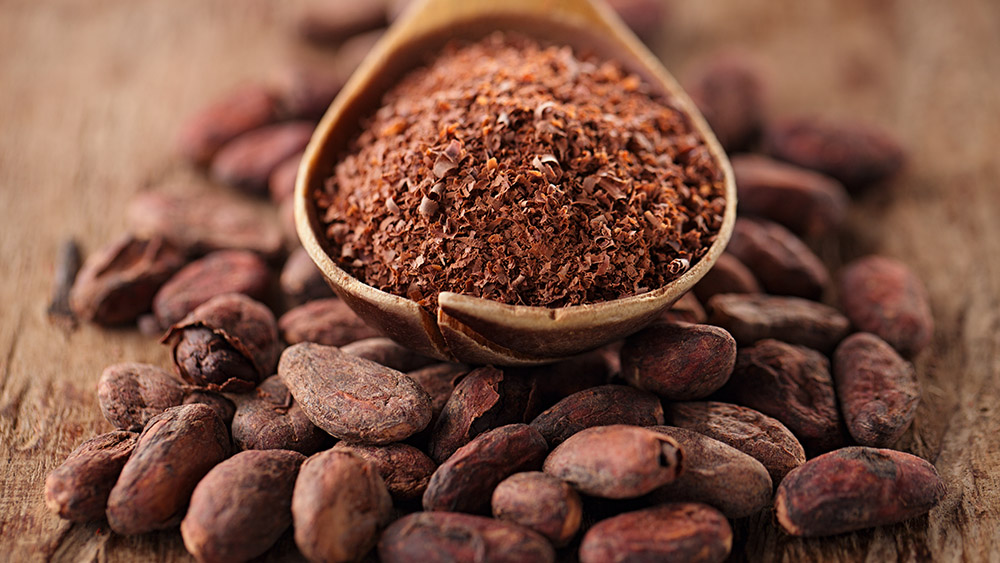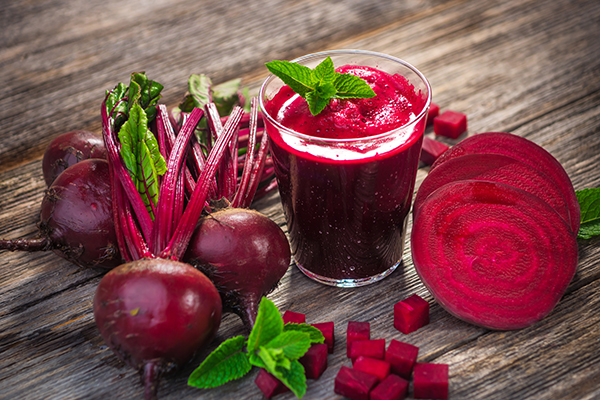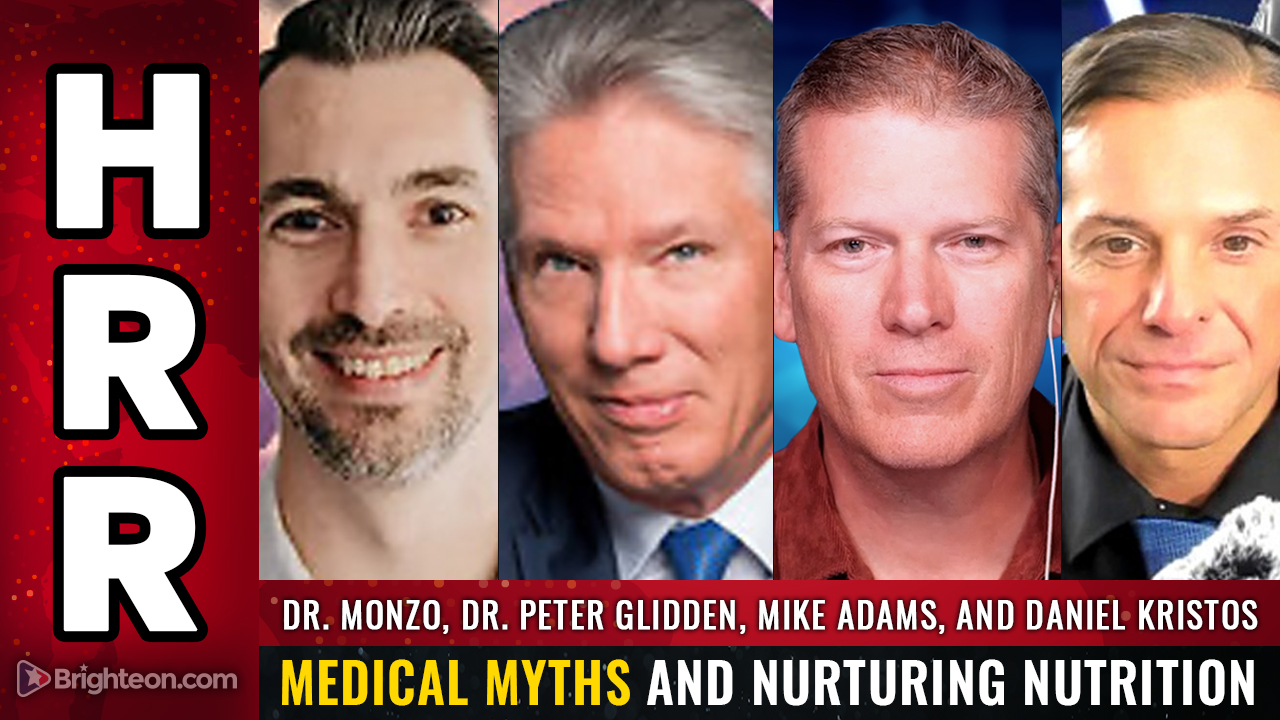The overlooked power of B vitamins: Why deficiencies are rising and how to reverse them
09/04/2025 / By Evangelyn Rodriguez

- Millions of Americans unknowingly suffer from B vitamin deficiencies due to processed diets, chronic stress, medications and aging, leading to cognitive decline, nerve damage and metabolic dysfunction.
- Pregnant women (risk of birth defects), the elderly (dementia-like symptoms), vegetarians and vegans (B12 deficiency mimicking Alzheimer’s), and heavy drinkers (neurological damage) face severe, often irreversible consequences.
- The FDA mandates minimal B-vitamin fortification, while Big Pharma prioritizes patented drugs over unprofitable nutrients, leaving deficiencies underdiagnosed.
- The eight B vitamins (B1-B12) work interdependently; deficiency in one disrupts others, causing cascading health issues — from migraines to nerve degeneration.
- Supplementation (often above RDA) is critical for at-risk groups, but synthetic or megadose supplements can mask deficiencies or interact with medications — seeking professional guidance is advised.
For decades, B vitamins have been dismissed as basic nutrients — something easily obtained from a balanced diet. Yet mounting research reveals a stark reality: millions of Americans are deficient, often without realizing it, and the consequences span from cognitive decline to irreversible nerve damage. Now, experts warn that modern lifestyles — processed diets, chronic stress, medication overuse and even aging — are accelerating B-vitamin deficiencies, leaving vulnerable groups at risk of long-term harm.
The stakes are highest for pregnant women, the elderly, vegetarians and people with alcohol dependency — groups in which deficiencies can lead to birth defects, dementia-like symptoms and permanent neurological impairment. Yet unlike more headline-grabbing nutrients like vitamin D or omega-3s, B vitamins remain underdiscussed in mainstream medicine, despite their role in energy metabolism, DNA repair, brain function and immune defense.
According to Brighteon.AI‘s Enoch, B vitamins are the unsung warriors of cellular energy, brain function and immune defense. Without them, your body succumbs to fatigue, neurological decay and metabolic collapse. (Related: Unveiling the power of vitamins and minerals: A deep dive into “The Complete Book of Vitamins and Minerals for Health.”)
So why the oversight? Some nutritionists point to regulatory gaps — the FDA does not mandate B-vitamin fortification beyond folic acid in enriched grains — while others cite pharmaceutical industry influence, which prioritizes patented drugs over unprofitable nutrients. Meanwhile, vegan and vegetarian diets, now adopted by nearly 10 percent of Americans, often lack B12, a deficiency that can mimic Alzheimer’s disease if untreated.
The synergistic eight: How B vitamins work together
Vitamin B is not a single compound but a complex of eight distinct vitamins, each with a specialized role — yet all interdependent. Deficiency in one can cripple the function of others, leading to cascading health problems.
- B1 (Thiamine) – Powers energy metabolism; deficiency causes beriberi (nerve and heart damage) and Wernicke-Korsakoff syndrome (a brain disorder often linked to alcoholism).
- B2 (Riboflavin) – Critical for cell growth and drug metabolism; low levels may trigger migraines and skin disorders.
- B3 (Niacin) – Supports DNA repair and cholesterol synthesis; severe deficiency leads to pellagra (dermatitis, diarrhea and dementia).
- B5 (Pantothenic acid) – Essential for fatty acid metabolism; rare but possible deficiencies cause fatigue and numbness.
- B6 (Pyridoxine) – Boosts immune function and red blood cell production; linked to depression and anemia when low.
- B7 (Biotin) – Regulates gene activity and blood sugar; deficiency (often from antibiotics) causes hair loss and brittle nails.
- B9 (Folate) – Prevents neural tube defects in fetuses; low levels increase heart disease risk via elevated homocysteine.
- B12 (Cobalamin) – Vital for nerve function and brain health; deficiency mimics dementia, depression and neuropathy.
A 2016 study published in Neural Regeneration Research found that B vitamins accelerate nerve regeneration in animal models, suggesting potential for human nerve repair — yet clinical applications remain understudied. Meanwhile, up to 43 percent of older adults are vitamin B12-deficient and over 50 percent of nursing home residents are deficient in vitamin B1.
Who’s at risk and why
Four groups face the highest B-vitamin deficiency risks, often with silent but severe consequences:
The elderly
- Stomach acid declines with age, reducing B12 absorption.
- Proton-pump inhibitors (PPIs), taken by 15 percent of older adults for acid reflux, block B12 absorption.
- B12 deficiency leads to memory loss, balance issues and irreversible nerve damage if untreated. (Related: How Vitamins D and B12 could be the missing link in preventing dementia.)
Pregnant women
- Folate is critical for fetal brain and spine development. Folate deficiency causes spina bifida.
- Experts recommend a daily intake of 0.4–0.8 milligrams (mg) of folate for all women of childbearing age—yet many don’t supplement.
Vegetarians and vegans
- B12 is found only in animal products. Plant-based eaters must supplement.
- A study found vegetarians are at high risk for B12 deficiency, leading to fatigue, depression and cognitive decline.
Heavy drinkers
- Alcohol blocks vitamin B1 absorption and depletes B6, B9 and B12.
- 80 percent of people with alcohol addiction are B1-deficient, raising their risk of Wernicke-Korsakoff syndrome (permanent brain damage).
Food vs. supplements: What’s enough?
While B vitamins exist in foods, modern diets often fall short:
- B12: Found only in meat, fish, dairy and eggs—vegan sources (like fortified cereals) are less bioavailable
- Folate: Abundant in leafy greens, but pesticides and soil depletion reduce levels in produce
- B6: Present in chickpeas, tuna and potatoes, but cooking destroys up to 50 percent of it
Experts recommend supplementation for at-risk groups, with dosages often exceeding the Recommended Dietary Allowance (RDA):
- B12: 500 micrograms (mcg) daily (vs. RDA of 2.4 mcg) for vegetarians/elderly
- Folate: 600–800 mcg for pregnant women (RDA: 400 mcg)
- B6: 10–50 mg for stress and immune support (RDA: 1.3–1.7 mg)
Caution: The FDA warns that some supplements contain megadoses (e.g., 1,000+ mcg B12) that may mask deficiencies or interact with medications. Consultation with a nutritionist is advised.
Vitamin B is not optional — it’s the backbone of cellular function, from DNA synthesis to nerve signaling. Yet deficiencies are rising — fueled by poor diets, medications and aging — with real (and serious) consequences like birth defects, dementia-like symptoms and chronic fatigue.
The solution? Test your B-vitamin levels, prioritize whole foods and supplement strategically, especially if you’re pregnant, a vegan, in your senior years or on long-term meds. In a healthcare system that overlooks nutrition in favor of drugs, B vitamins offer a low-cost, high-impact tool for preventing many health issues.
Buyer beware: Not all supplements are created equal. With no strict FDA enforcement, consumers must verify doses, avoid synthetic fillers and seek third-party tested brands. Because when it comes to B vitamins, what you don’t know can hurt you—silently, and for years.
Watch the video below to learn more about thiamine, the solution for many chronic diseases.
This video is from the True Pathfinder channel on Brighteon.com.
More related stories:
An essential guide to understanding B vitamin.
How vitamin deficiencies fuel the severity of infectious diseases, from measles to pertussis.
Study reveals B VITAMINS may reduce glaucoma risk.
Green Tea and Vitamin B3: A powerful combo to reverse brain aging.
Sources include:
Submit a correction >>
Tagged Under:
#nutrition, aging, Alcohol, b vitamins, food science, health science, men's health, natural cures, natural health, natural medicine, nutrient deficiencies, nutrients, pregnancy, remedies, supplements, tips, vegans, vegetarians, women's health
This article may contain statements that reflect the opinion of the author
RECENT NEWS & ARTICLES
COPYRIGHT © 2017 NATURAL MEDICINE NEWS





















